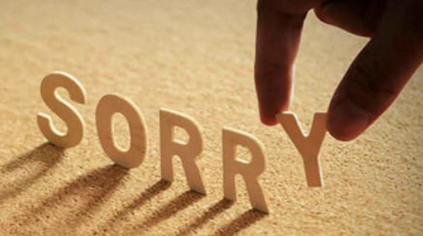
Exam-oriented education 应试教育(插图)

We might marvel at the progress made in every field of study, but the methods of testing a person’s knowledge and ability remain as primitive as ever they were. It really is extraordinary that after all these years, educationists have still failed to devise anything more efficient and reliable than examinations. For all the pious claim that examinations test what you know, it is common knowledge that they more often do the exact opposite.They may be a good means of testing memory, or the knack of working rapidly under extreme pressure, but they can tell nothing about a person’s true ability and aptitude.
As anxiety-makers, examinations are second to none. That is because so much depends on them. They are the mark of success or failure in our society. Your whole future may be decided in one fateful day. It doesn’t matter that you weren’t feeling very well, or that your mother dies. Little things like that don’t count: the exam goes on. No one can give of his best when he is in mortal terror, or after sleepless night, yet this is precisely what the examination system expects him to do. The moment a child begins school, he enters a world of vicious competition where success and failure are clearly defined and measured. Can we wonder at the increasing number of ‘drop-outs’: young people who are written off as utter failures before they have even embarked on a career? Can we be surprised at the suicide rate among students?A good education should, among other things, train you to think for yourself. The examination system does anything but that. What has to be learnt is rigidly laid down by a syllabus, so the student is encouraged to memories. Examinations do not motivate a student to read widely, but to restrict his reading; they do not enable him to seek more and more knowledge, but induce cramming. They lower the standards of teaching, for they deprive the teacher of all freedom. Teachers themselves are often judged by examination results and instead of teaching their subjects, they are reduced to training their students in exam techniques which they despise. The most successful candidates are not always the best educated; they are the best trained in the technique of working under duress.
The results on which so much depends are often nothing more than a subjective assessment by some anonymous examiner. Examiners are only human. They get tired and hungry; they make mistakes. Yet they have to mark stacks of hastily scrawled scripts in a limited amount of time. They work under the same sort of pressure as the candidates. And their word carries weight. After a judge’s decision on you have the right of appeal, but not after an examiner’s. There must surely be many simpler and more effective ways of assessing a person’s true abilities. It is cynical to suggest that examinations are merely a profitable business for the institutions that run them? This is what it boils down to in the last analysis. The best comment on the system is this illiterate message recently scrawled on a wall: ‘I were a teenage drop-out and now I are a teenage millionaire.’
在各个领域取得的进步我们或许会感到吃惊,但是测试一个人的知识和能力的方法依然原始如初。这真的是非同寻常的,毕竟这些年来,教育者们仍没能创立出一种比考试更有效、更可靠。所有这些虔诚的说法,考试测试你所知道的,这是常识,往往适得其反。他们可能是检测记忆的好方法,或者在极端压力下快速工作的诀窍,但他们可以告诉任何一个人的真正能力和资质。
作为制造焦虑者,考试是首屈一指的。这是因为如此多的取决于他们。他们成功或失败的标志在我们的社会。你的整个未来可能决定在那致命的一天。没关系,你不感觉很好,或者你的母亲去世。这样的小事情不要计数:考试。没有人可以给他最好的,当他在致命的恐怖,或不眠之夜后,不过这正是考试制度期望他做。一个孩子步入学校大门那一刻起,他便步入了一个恶性竞争的世界。在那里,成功和失败是明确定义和测量。我们会对越来越多的"辍学生":年轻人是彻底的失败之前就开始了职业生涯?学生的自杀率我们能感到吃惊吗?一种好的教育应当包括培养你独立的自己。做任何事,但考试系统。学生必须学些什么教学大纲生硬地规定,因此鼓励学生记忆。考试不能激励学生去广泛阅读,而是限制他阅读;他们不让他寻求更多的知识,反而引起了死记硬背。他们降低教学标准,因为他们剥夺了老师的一切自由。教师本身教学经常根据考试成绩,而是自己的臣民,他们减少了训练学生考试技巧,他们鄙视。最成功的应试者往往不是最好的教育,他们是最好的训练技术在胁迫下工作。
这么多的结果往往取决于只不过是某个匿名主考者的主观评价。考官也是人。他们会变累,会饥饿,他们犯错误。然而,他们必须马克匆匆草书的在有限的时间内。他们在同样的压力下工作的候选人。和他们的话很有分量。经过法官的决定你有上诉的权利,但不经过检查。肯定有很多更简单和跟有效的方法评估一个人的真实能力。愤世嫉俗的建议,考试仅仅是一个有利可图的业务运行它们的机构?这就是它可以归结为在过去的分析。最好的评论系统这是文盲消息最近在墙上潦草地写着:"我是一个十几岁的辍学,现在我是一个十几岁的百万富翁。"
编辑:Liuxuepaper.Com
作文地带知识拓展:








文档为doc格式
推荐阅读:


